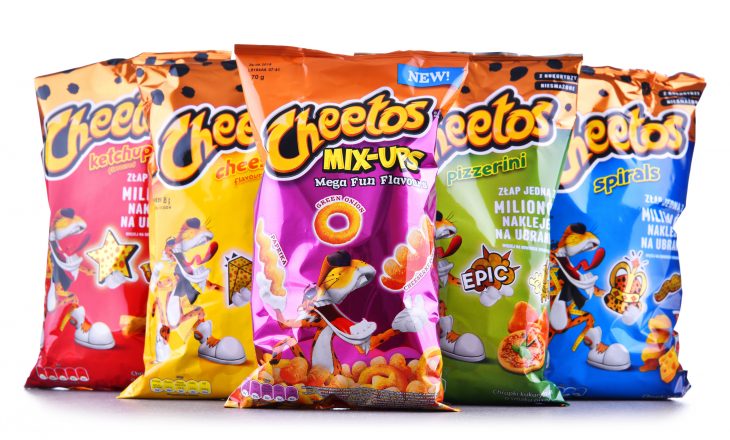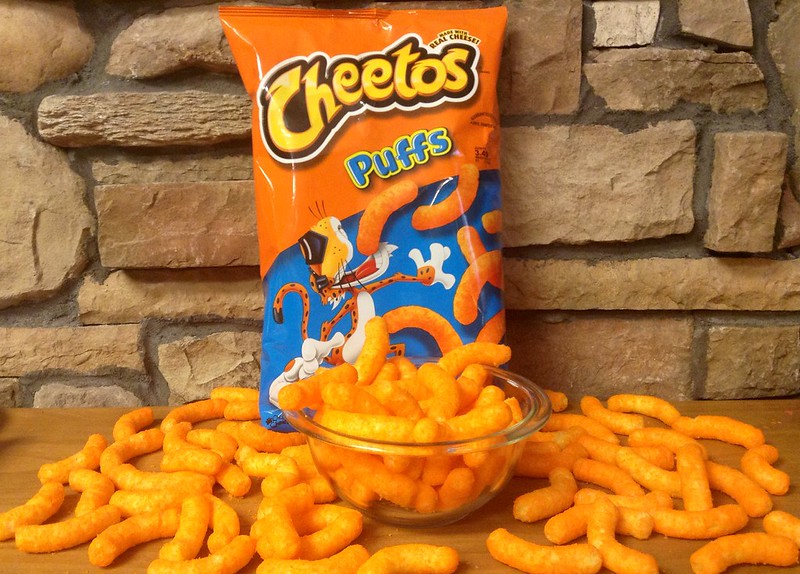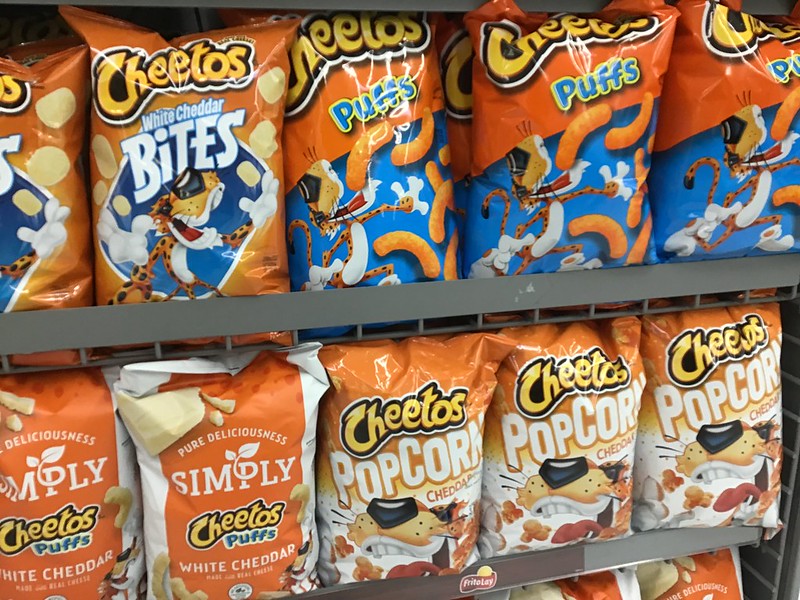
Cheetos is a popular brand of cheese-flavored puffed cornmeal snacks, enjoyed by millions of people worldwide. crunchy, cheesy, and addictive snacks are a staple at parties, movie theaters, and road trips. However, while they may be delicious, have you ever wondered about their nutritional value? In this article, we will discuss 16 Cheetos nutrition facts that can help you better understand the snack’s nutritional profile.
Calorie Content
Cheetos are calorie-dense snacks, with a 1-ounce (28g) serving providing approximately 160-170 calories. While snacking on Cheetos occasionally is unlikely to cause significant harm, excessive consumption can contribute to weight gain if you do not pair it with physical activity and a healthy diet.
Fat Content
Cheetos contain a significant amount of fat, with a 1-ounce serving providing around 10-12 grams of total fat. This includes both saturated and unsaturated fats. Consuming too much fat, particularly saturated fat, can increase the risk of heart disease and other health issues.
Sodium Levels
Cheetos are relatively high in sodium, with a 1-ounce serving containing between 200-250 milligrams depending on the flavor. Consuming too much sodium can lead to high blood pressure and other health problems. As such, it is important to keep an eye on your overall sodium intake and opt for lower-sodium snack alternatives when possible.
Carbohydrate Content
As a corn-based snack, Cheetos are primarily composed of carbohydrates. A 1-ounce serving provides approximately 15-18 grams of total carbohydrates, including around 1 gram of dietary fiber. While carbohydrates are a necessary part of a balanced diet, it’s important to consume them in moderation. Instead, you should prioritize healthier whole-grain and fiber-rich options.
Limited Protein
Cheetos provide minimal protein, with a 1-ounce serving containing only about 2 grams. Although Cheetos are not a significant protein source, they can still be enjoyed alongside high-protein foods as part of a balanced diet.
Artificial Colors and Flavors
Cheetos contain various artificial colors and flavors, which contribute to their bold taste and vibrant appearance. However, some individuals may be sensitive to these additives and experience allergic reactions or other side effects. If you are concerned about artificial ingredients, consider opting for natural or minimally processed snack alternatives.
Presence of Genetically Modified Ingredients
Cheetos are made from corn, which is often genetically modified (GM) in the United States. While GM foods are considered safe for consumption by most regulatory agencies, some people may prefer to avoid them for ethical, environmental, or personal reasons.
Trans Fat Content
Cheetos have zero grams of trans fat per serving. However, it’s important to note that food manufacturers in the United States are allowed to list trans fat content as zero if it is below 0.5 grams per serving. Consuming even small amounts of trans fats can increase the risk of heart disease and other health issues.
Vitamin and Mineral Content
Cheetos provide minimal essential vitamins and minerals. They do contain small amounts of iron and calcium but are not significant sources of these nutrients. To ensure a well-rounded diet, it’s crucial to consume a variety of nutrient-dense foods.
Cholesterol Content
Cheetos have no cholesterol in a 1-ounce serving. Cholesterol is found only in animal-based foods, so plant-based snacks like Cheetos are naturally cholesterol-free. However, it’s important to monitor the overall fat and sodium content, as excessive consumption can still negatively impact heart health.
Gluten-Free Status
Cheetos are considered gluten-free, as they are made from cornmeal and do not contain wheat or other gluten-containing ingredients. However, it is still important to read labels and check for any potential cross-contamination risks if you have celiac disease or gluten sensitivity.
Sugar Content
Cheetos have a relatively low sugar content, with a 1-ounce serving containing less than 1 gram. While they are not a significant source of added sugars, it’s important to monitor your overall sugar intake and prioritize nutrient-dense foods with naturally occurring sugars, such as fruits and vegetables.
Energy Density
Cheetos are an energy-dense snack, meaning they provide a large number of calories in a relatively small serving size. Consuming energy-dense foods can make it more difficult to maintain a healthy weight, so it’s essential to practice portion control and opt for lower-calorie snack alternatives when possible.
Baked Cheetos: A Lower-Fat Alternative
Baked Cheetos offer a lower-fat alternative to traditional Cheetos, with a 1-ounce serving providing around 5 grams of total fat. While they still contain a significant amount of sodium and carbohydrates, choosing Baked Cheetos can help reduce overall fat intake.
Nutrient Density
Cheetos have a low nutrient density, meaning they provide few essential vitamins and minerals relative to their calorie content. Instead of consuming Cheetos, consider prioritizing nutrient-dense foods, such as fruits, vegetables, whole grains, and lean proteins instead. These can help promote overall health and well-being.
Allergen Information
Cheetos contain dairy in the form of cheese powder and may also contain traces of other allergens. If you have food allergies or sensitivities, it’s important to read the labels carefully and consult with a healthcare professional if you have any concerns.

More About Cheetos
Cheetos Flavors: A Wide Variety to Choose From
Cheetos offers a wide range of flavors to suit various tastes, including classic options like Crunchy, Puffs, Flamin’ Hot, and Cheddar Jalapeño. While the specific nutritional content may vary slightly between flavors, they generally have a similar nutritional profile.
Snack-Size Portions
Cheetos are often available in small, single-serving snack-size bags. These can help promote portion control and prevent overconsumption of this calorie-dense snack. Opting for snack-size portions can make it easier to enjoy Cheetos in moderation as part of a balanced diet.
Making Healthier Snack Choices
While Cheetos can be enjoyed occasionally as part of a balanced diet, it’s essential to prioritize healthier snack options. Opt for whole, minimally processed foods like fruits, vegetables, nuts, seeds, and whole-grain crackers to support overall health and well-being.
Conclusion
These 19 Cheetos nutrition facts provide insight into the popular snack’s nutritional content and potential health implications. Ultimately, while Cheetos may be a delicious snack, they’re not exactly a health food. If you enjoy them from time to time, that’s perfectly fine – just be sure to enjoy them in moderation and balance them out with plenty of nutritious whole foods.
Was this page helpful?
Our commitment to delivering trustworthy and engaging content is at the heart of what we do. Each fact on our site is contributed by real users like you, bringing a wealth of diverse insights and information. To ensure the highest standards of accuracy and reliability, our dedicated editors meticulously review each submission. This process guarantees that the facts we share are not only fascinating but also credible. Trust in our commitment to quality and authenticity as you explore and learn with us.

